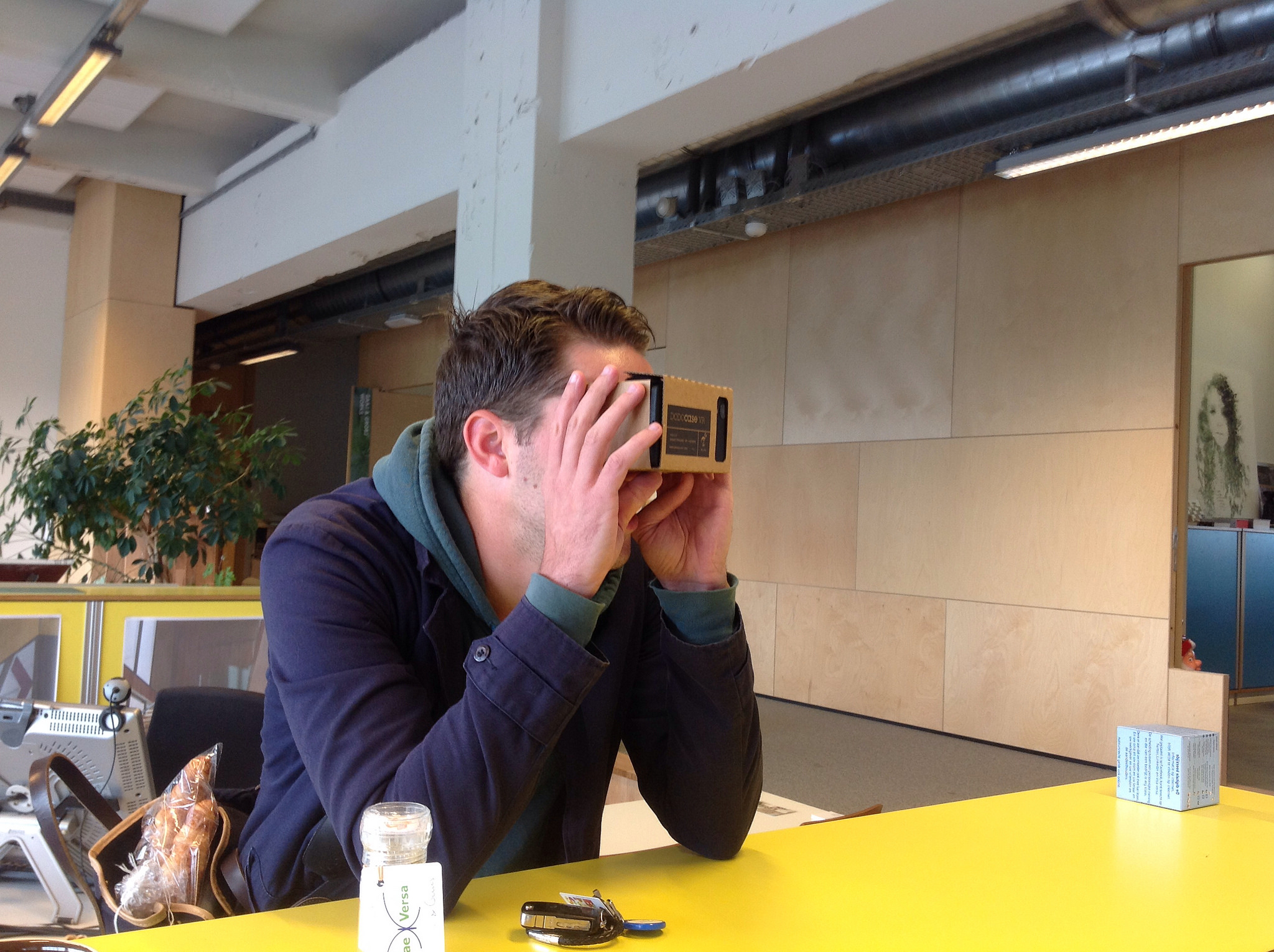 NEWS
NEWS
 NEWS
NEWS
 NEWS
NEWS
The rumors keep flying about Google’s plans in the virtual reality space with a new report claiming the search giant is actually doubling down on VR and is building a standalone unit that doesn’t need a smartphone to operate, as is currently the case with its Cardboard VR headset.
According to sources quoted by The Wall Street Journal, Google is developing all-in-one virtual reality headset that not only doesn’t require a smartphone but also won’t need a computer or game console to operate, a first in the space.
Google’s new standalone device is said to include “a screen, high-powered processors and outward-facing cameras” and is being designed to provide a “middle ground” experience that won’t be as powerful as the HTC Vive or Oculus Rift, but instead will offer untethered use, overcoming one of the limitations those VR headsets currently have.
When, or even if Google would be releasing the new standalone VR headset isn’t clear, with one source telling the paper that it could arrive this year while another source says that it’s still early in development and may never actually see the light of day as a retail product.
The same report also notes that Google will also be releasing, separately, a successor to its Cardboard VR headset as well as the new device, confirming reports from earlier this month which said the device would be similar to Samsung Electronic Co. Ltd.’s Gear VR, in that it will rely on a smartphone for its display and ‘most of its processing power,” but unlike the original Cardboard will come with additional motion sensors to add to what the phone itself puts out.
While absolutely nothing is solid at this stage, and reports have all relied on the proverbial “people familiar with the matter,” the number of reports would certainly seem to confirm that Google is doubling down on virtual reality development, certainly since it was confirmed in January that Google now has a dedicated virtual reality team run by Clay Bavor, previously the Vice President of Product Management.
What is interesting is Google’s seeming decision to build the hardware itself given they’ve previously partnered with other companies to create Google-branded devices, although perhaps with the second coming of virtual reality still very much nascent it sees a potential opportunity to build a hardware business for itself, and perhaps even a big one over the longer term at that.
It will be an interesting year ahead as many of the players in the burgeoning space come to market, and while Google may have failed with their Google Glass augmented reality headset, it’s far too early to write them off in the VR space yet.
Support our mission to keep content open and free by engaging with theCUBE community. Join theCUBE’s Alumni Trust Network, where technology leaders connect, share intelligence and create opportunities.
Founded by tech visionaries John Furrier and Dave Vellante, SiliconANGLE Media has built a dynamic ecosystem of industry-leading digital media brands that reach 15+ million elite tech professionals. Our new proprietary theCUBE AI Video Cloud is breaking ground in audience interaction, leveraging theCUBEai.com neural network to help technology companies make data-driven decisions and stay at the forefront of industry conversations.